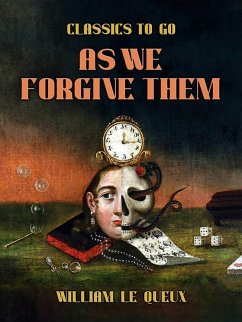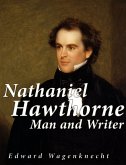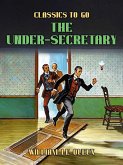As We Forgive Them (1904) is a mystery novel by Anglo-French writer William Le Queux. Published at the height of Le Queux's career as a leading author of popular thrillers, As We Forgive Them is a story of espionage, mystery, and murder. Using his own research and experience as a journalist and adventurer, Le Queux crafts an accessible, entertaining tale for readers in search of a literary escape. Known for his works of fiction and nonfiction on the possibility of Germany invading Britain-a paranoia common in the early twentieth century-William Le Queux also wrote dozens of thrillers and adventure novels for a dedicated public audience. Although critical acclaim eluded him, popular success made him one of England's bestselling writers. In As We Forgive Them, two friends journey from London to Manchester after receiving an urgent telegram from Burton Blair, a wealthy philanthropist. Arriving at Blair's hotel room, they discover their friend dying from a sudden illness. Before passing on, he begs them to look after his daughter Mabel, recalling their friendship in times of immense difficulty. Years before he made his millions, Blair and his daughter were taken in by Gilbert and Reginald, and though their kindness was repaid in full, they had always hoped to have the secret of Blair's sudden wealth revealed to them. Not long after their arrival, the great man dies, leaving the pair to find Mabel before her father's death is discovered by nefarious individuals. In the story that follows, the bonds of friendship are put to the test as Gilbert and Reginald uncover a mystery centuries in the making, following a trail that will lead them to a legendary lost treasure.
Dieser Download kann aus rechtlichen Gründen nur mit Rechnungsadresse in A, B, BG, CY, CZ, D, DK, EW, E, FIN, F, GR, HR, H, IRL, I, LT, L, LR, M, NL, PL, P, R, S, SLO, SK ausgeliefert werden.









